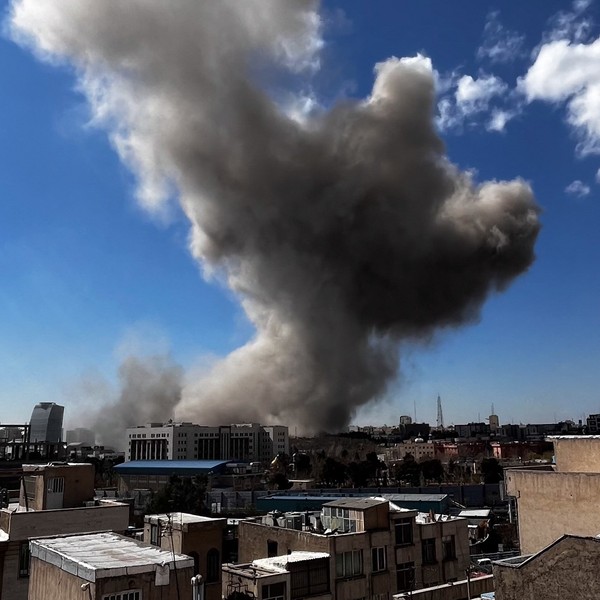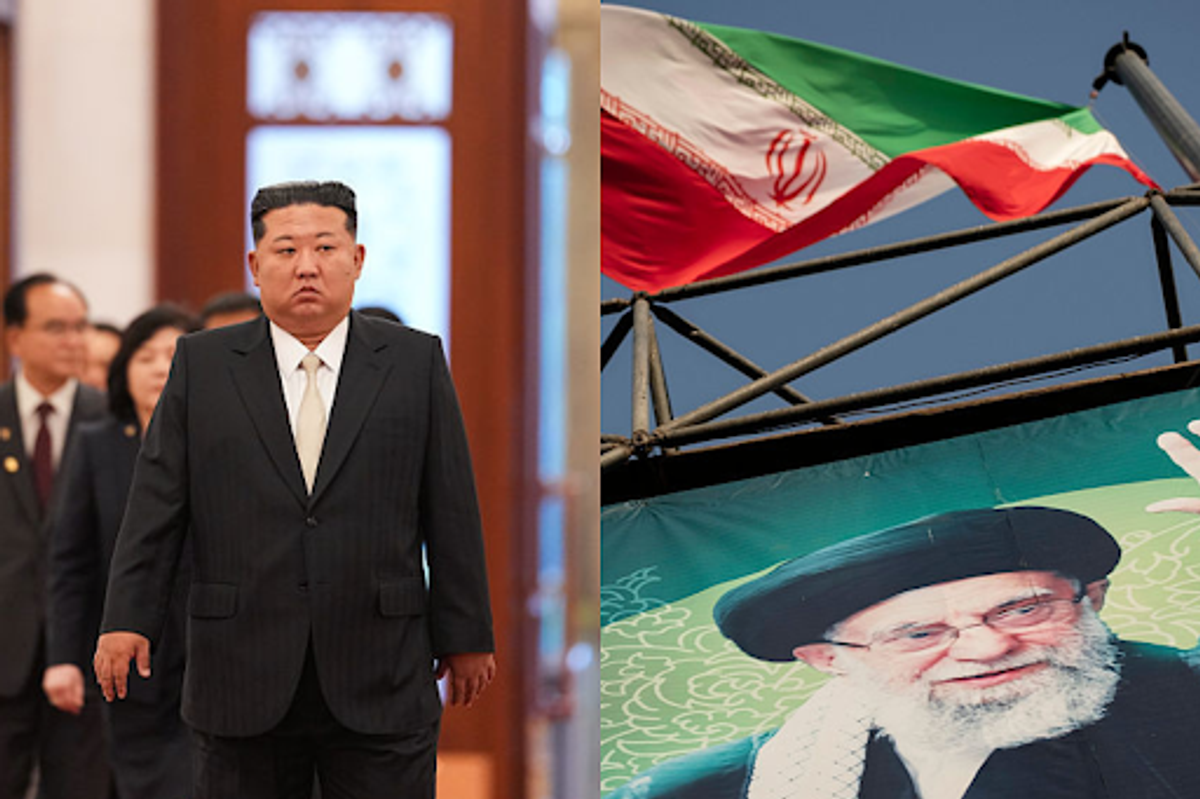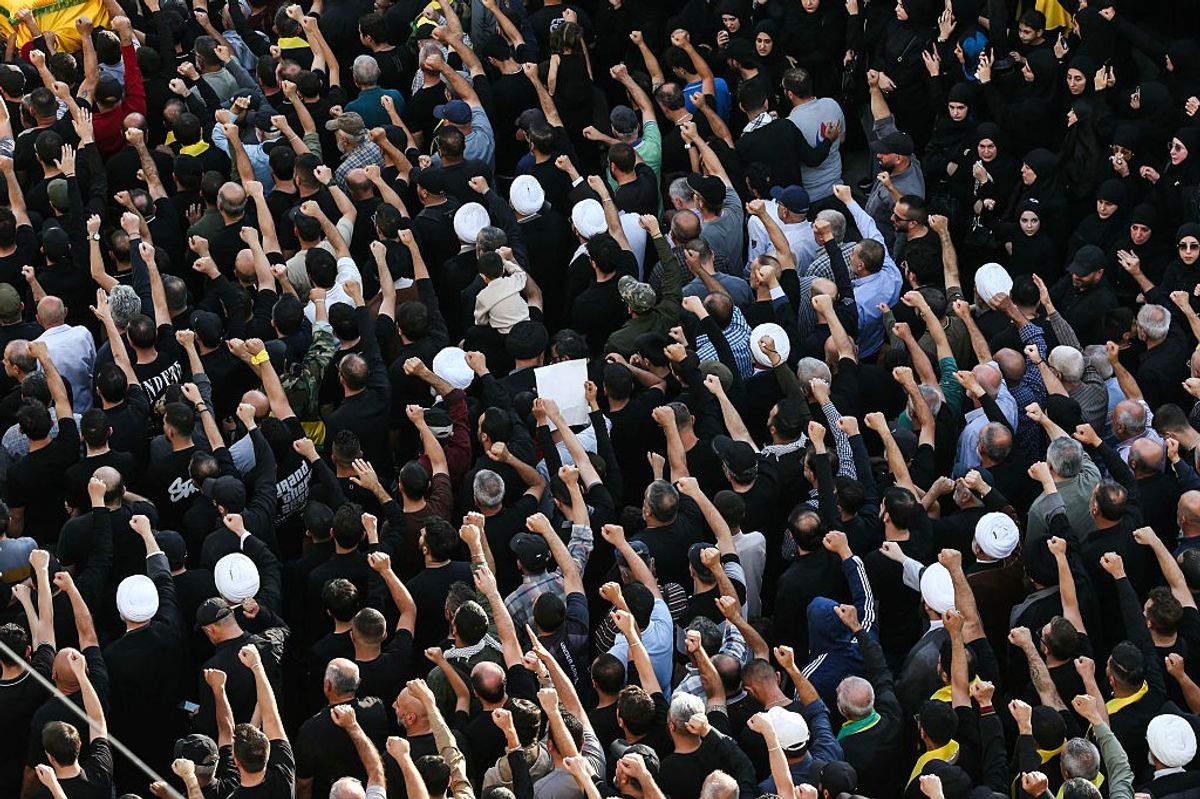OPINION — The United States must use this week’s Vienna meeting of atomic inspectors to stop Iran’s nuclear program from becoming a black box. Without being able to detect Tehran’s final leap to the bomb, or even how close it might be, the U.S. and other nations will have absolutely no chance to prevent it.
It is easy to focus on Iran’s measurable enrichment progress at these meetings. We know Iran needs mere days to make a bomb’s worth of fissile material, that it could produce a dozen such quantities in two months, and that this capacity is expanding. We also know Iran has practiced producing weapons-grade uranium, only because inspectors arrived unannounced at the Fordo facility built specifically for this purpose. None of this bodes well for catching Iran’s next attempt.
But the most concerning activities are much more obscure. The International Atomic Energy Agency’s director has warned repeatedly that he cannot fully track Iran’s program, including any secret centrifuges Tehran might have walled off from prying eyes. Iran further violates IAEA safeguards by blocking inspectors from a new subterranean facility for enrichment or centrifuge-making at Natanz. Iran’s precise hoard of unenriched uranium, the feedstock for fissile material, is also unknown.
Absent this information, it is impossible to gauge Iran’s ability to make weapons-grade uranium at a potential clandestine site, possibly by diverting some current stocks. This is no abstract concern. Tehran built its known enrichment sites covertly, only admitting their existence retroactively once construction was exposed.
Weaponizing a nuclear weapon
The world understands even less about weaponization that would put fissile material in a warhead, beyond the belief that Iran is very close to this capability. Israel’s 2018 seizure of Tehran’s secret archives confirmed IAEA suspicions that Iran had lied systematically about this venture, yet Iran has actively stonewalled inspectors pursuing leads from the archives. Israel’s daring raid, and the secrets it revealed, also underscore how difficult it is to glean information about the full extent of Iran’s true progress and ongoing efforts.
It's not just for the President anymore. Cipher Brief Subscriber+Members have access to their own Open Source Daily Brief, keeping you up to date on global events impacting national security. It pays to be a Subscriber+Member.
Final weaponization likely would occur in small, undeclared underground sites that are harder to detect even than covert enrichment plants. The archives showed weaponization was dispersed across a complex web of military and civilian sites, similar to the Manhattan Project’s diffuse structure which helped stymie foreign spies.
Tehran’s decision-making when it comes to the nuclear program is also opaque. Historically, political as much as technical considerations ultimately propel countries over the nuclear finish line, but these do not always follow clear decrees, proceed predictably, or generate blaring signals. And it is an open debate whether Iran might produce a working weapon, or stop at the point when it has achieved all the necessary elements of doing so.
A poverty of intelligence
The U.S. intelligence community’s benchmark public assessment, a 2007 National Intelligence Estimate, was ignorant of Fordo’s covert construction. Its conclusion that Iran’s bomb-making efforts had stopped was overturned by Israel’s archives heist, which also revealed weaponization facilities previously unknown to Western intelligence. Last year, then Joint Chiefs Chairman Gen. Mark Milley declared Iran would need several months for a workable bomb, starkly contradicting established U.S. assessments that the time frame would be 1-2 years.
Subscriber+Members have a higher level of access to Cipher Brief Expert Perspectives and get exclusive access to The Dead Drop, the best national security gossip publication, if we do say so ourselves. Find out what you’re missing. Upgrade your access to Subscriber+ now.
This fits a pattern. Washington was surprised by the first Soviet, Chinese, and even French nuclear tests, and was unaware of considerable progress by Iraq, Syria, and South Africa.
Currently, U.S. intelligence states publicly that Iran is not trying “to produce a testable nuclear device.” Such narrow framing leaves open the possibility Tehran is actively progressing toward the bomb, and may even possess every component, without having decided to assemble them.
Following reports in June of Iranian simulations for a nuclear detonation, the Biden administration asserted that the United States and Israel do not believe Iran’s Supreme Leader has decided to produce a bomb. Yet the U.S. intelligence community reported soon after that Iran was undertaking activities that “better position it to produce a nuclear device.”
These pervasive unknowns invalidate the tired, pro forma U.S. promises to prevent final progress. With its European allies, America’s reticence to “snap back” robust UN Security Council sanctions for years of Iran’s egregious safeguards violations – despite endless, explicit warnings – reflects their fears Tehran will retaliate by finishing the bomb. Detecting this self-deterrence, Iranian officials drop increasingly unsubtle hints of their ability, if provoked, to go nuclear at the drop of a hat.
Wanted: Nuclear clarity
Above all else, the United States needs true clarity on Iran’s nuclear program before it can credibly claim to pursue “a strategy of deterrence,” in Secretary of State Antony Blinken’s words. The United States must demand Iran divulge what it never has before, even under the 2015 JCPOA nuclear deal. It needs to provide a full and complete declaration of its nuclear program, including all weaponization efforts, enrichment and centrifuge infrastructure, and much more. Among other things, this would entail full access anywhere inspectors suspect Iran of undeclared nuclear activities, including sensitive military bases.
Since Iran currently feels zero compunction to comply, the United States will have to work clearly and closely with its European allies in Vienna, and with Israel, to convince Tehran that opening its books is far preferable to stringent multilateral sanctions and possible military action. This certainly will not be easy, especially after years of unfulfilled promises to punish Iran’s safeguards violations, yet attempting it is highly preferable to staying the course and hoping for a different outcome.
Only by shining this light can the United States begin meaningfully addressing Iran’s nuclear threat. As it turns out, what we don’t know can, in fact, hurt us.
The Cipher Brief is committed to publishing a range of perspectives on national security issues submitted by deeply experienced national security professionals.
Opinions expressed are those of the author and do not represent the views or opinions of The Cipher Brief.
Have a perspective to share based on your experience in the national security field? Send it to Editor@thecipherbrief.com for publication consideration.
Read more expert-driven national security insights, perspective and analysis in The Cipher Brief















